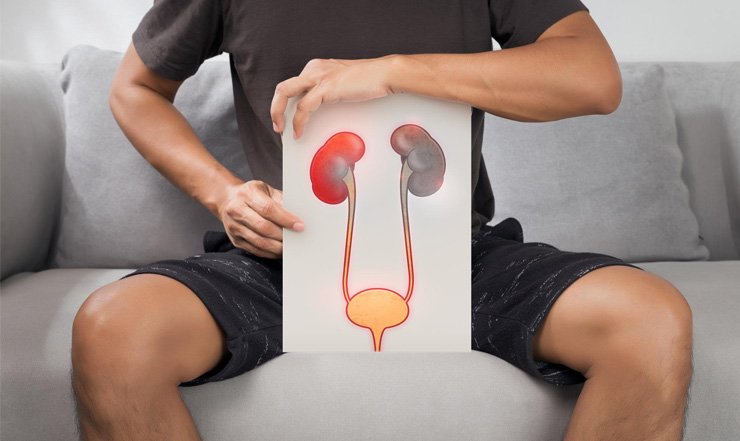Millions around the world are suffering from a serious medical condition named Chronic Kidney Disease. It basically means that the functioning of the kidney is getting low. So, you need to catch the signs and symptoms early so that it can be treated without much delay. It is important that you consider connecting with the experts to take part of the available treatment options and help you in terms of managing CKD and enhancing the quality of your life. If you are thinking about how to go about it, then below we have all the answers for you. Read on.
Chronic Kidney Disease: An Overview
Chronic Kidney Disease (CKD) is a condition in which damaged kidneys lose their capacity to efficiently filter blood. This results in a buildup of toxins in the body that creates several health issues. Among the many important tasks the kidneys do are
- Removing extra fluids and trash from the blood
- Controlling blood pressure
- Producing hormones that support red blood cell formation
- Keeping bone health
Declining kidney function disturbs these processes and causes problems including anemia, high blood pressure, bone disease, and heart disease.
Early Signs of Kidney Disease
One of the challenges of CKD is that early signs of kidney disease are often subtle and easily overlooked. Many people with early-stage CKD experience no symptoms at all. However, as kidney function declines, some potential warning signs may appear. Recognizing these early signs of kidney disease is vital for early diagnosis and intervention. These signs may include:
- Fatigue: Feeling tired and lacking energy, even after adequate rest.
- Changes in Urination: This can include increased frequency of urination, especially at night (nocturia), foamy urine, or changes in urine color.
- Swelling: Swelling in the feet, ankles, or around the eyes due to fluid retention.
- High Blood Pressure: Kidneys play a role in regulating blood pressure, and kidney damage can lead to hypertension.
- Loss of Appetite: A decreased appetite or nausea.
- Muscle Cramps: Electrolyte imbalances caused by kidney dysfunction can lead to muscle cramps.
- Itching: A buildup of waste products in the blood can cause persistent itching.
If you experience any of these symptoms, it’s essential to consult a doctor for evaluation.
CKD Stages: A Progression of Kidney Damage
CKD is classified into five CKD stages, based on the estimated glomerular filtration rate (eGFR), which measures how well the kidneys are filtering blood. These CKD stages help doctors determine the severity of the disease and guide treatment decisions:
- Stage 1: Kidney damage with normal or increased GFR (eGFR ≥ 90 mL/min/1.73 m2). Kidney function is generally normal, but there may be other signs of kidney damage, such as protein in the urine.
- Stage 2: Kidney damage with mild decrease in GFR (eGFR 60-89 mL/min/1.73 m2). Kidney function is mildly reduced.
- Stage 3: Moderate decrease in GFR (eGFR 30-59 mL/min/1.73 m2). Kidney function is moderately reduced, and complications like high blood pressure and anemia may start to develop. This stage is often further divided into Stage 3a (eGFR 45-59) and Stage 3b (eGFR 30-44).
- Stage 4: Severe decrease in GFR (eGFR 15-29 mL/min/1.73 m2). Kidney function is severely reduced, and complications are more likely to occur.
- Stage 5: Kidney failure (eGFR < 15 mL/min/1.73 m2). This is the most advanced stage of CKD, also known as end-stage renal disease (ESRD). At this stage, the kidneys are no longer able to function adequately, and dialysis or a kidney transplant is necessary for survival.
Kidney Failure Symptoms
As CKD progresses to stage 5, kidney failure symptoms become more pronounced and can significantly impact quality of life. These kidney failure symptoms may include:
- Severe fatigue
- Persistent nausea and vomiting
- Loss of appetite
- Severe swelling
- Shortness of breath
- Confusion
- Seizures
- Coma
CKD Treatment Options
CKD treatment aims to reduce the progression of renal disease, control complications, and enhance quality of life. The stage of CKD and the person’s general health determine how CKD treatment plans differ. Among the treatment possibilities are:
- Lifestyle Modifications: These include dietary changes (such as limiting sodium, phosphorus, and potassium intake), regular exercise, weight management, and smoking cessation.
- Medications: Medications are used to manage complications such as high blood pressure, anemia, bone disease, and high cholesterol.
- Dialysis: Dialysis is a life-sustaining treatment that removes waste products and excess fluids from the blood when the kidneys can no longer do so. There are two main dialysis options: hemodialysis and peritoneal dialysis.
- Kidney Transplant: A kidney transplant involves surgically replacing a diseased kidney with a healthy kidney from a donor. This is often the preferred treatment option for individuals with end-stage renal disease.
Conclusion
This is why it is important that you constantly monitor the functioning of your kidney to manage your CKD. So, you must consider booking a nephrologist consultation that can help you understand all about the disease. If you are looking for experts to help you with the kidney function test, then you can always consider connecting with the Amrutha Hospital. We are here to help you with all the assistance in terms of detection, monitoring and proper treatment to manage CKD without any difficulty. Consult now!

